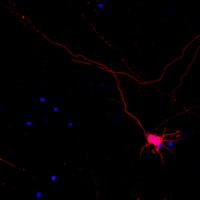04-958 Sigma-AldrichAnti-Beta Catenin Antibody, clone 7F7.2
This Anti-Beta Catenin Antibody, clone 7F7.2 is validated for use in WB, IC for the detection of Beta Catenin.
More>> This Anti-Beta Catenin Antibody, clone 7F7.2 is validated for use in WB, IC for the detection of Beta Catenin. Less<<Recommended Products
Overview
| Replacement Information |
|---|
Key Spec Table
| Species Reactivity | Key Applications | Host | Format | Antibody Type |
|---|---|---|---|---|
| H, M, R | WB, ICC | M | Purified | Monoclonal Antibody |
| References |
|---|
| Product Information | |
|---|---|
| Format | Purified |
| Control |
|
| Presentation | Purified mouse monoclonal IgG1κ in buffer containing 0.1 M Tris-Glycine, pH 7.4, 150 mM NaCl with 0.05% sodium azide. |
| Quality Level | MQ100 |
| Physicochemical Information |
|---|
| Dimensions |
|---|
| Materials Information |
|---|
| Toxicological Information |
|---|
| Safety Information according to GHS |
|---|
| Safety Information |
|---|
| Storage and Shipping Information | |
|---|---|
| Storage Conditions | Stable for 1 year at 2-8°C from date of receipt. |
| Packaging Information | |
|---|---|
| Material Size | 100 µg |
| Transport Information |
|---|
| Supplemental Information |
|---|
| Specifications |
|---|
| Global Trade Item Number | |
|---|---|
| Catalogue Number | GTIN |
| 04-958 | 04053252279614 |
Documentation
Anti-Beta Catenin Antibody, clone 7F7.2 MSDS
| Title |
|---|
Anti-Beta Catenin Antibody, clone 7F7.2 Certificates of Analysis
| Title | Lot Number |
|---|---|
| Anti-Beta Catenin, clone 7F7.2 - 2388923 | 2388923 |
| Anti-Beta Catenin, clone 7F7.2 - 1952471 | 1952471 |
| Anti-Beta Catenin, clone 7F7.2 - 2063196 | 2063196 |
| Anti-Beta Catenin, clone 7F7.2 - 2278566 | 2278566 |
| Anti-Beta Catenin, clone 7F7.2 - 2510196 | 2510196 |
| Anti-Beta Catenin, clone 7F7.2 - 2529960 | 2529960 |
| Anti-Beta Catenin, clone 7F7.2 - 3239841 | 3239841 |
| Anti-Beta Catenin, clone 7F7.2 - 3385818 | 3385818 |
| Anti-Beta Catenin, clone 7F7.2 - 3904348 | 3904348 |
| Anti-Beta Catenin, clone 7F7.2 - 4076658 | 4076658 |














